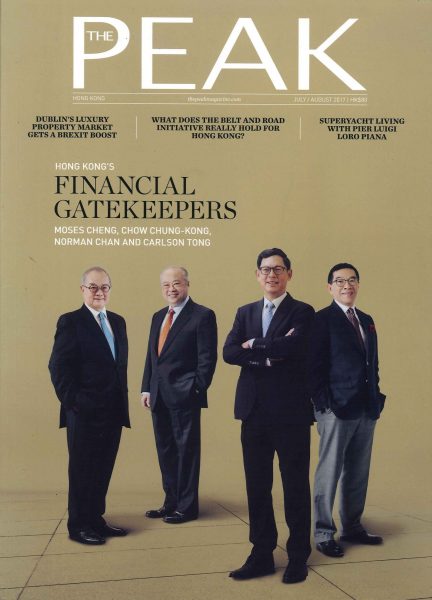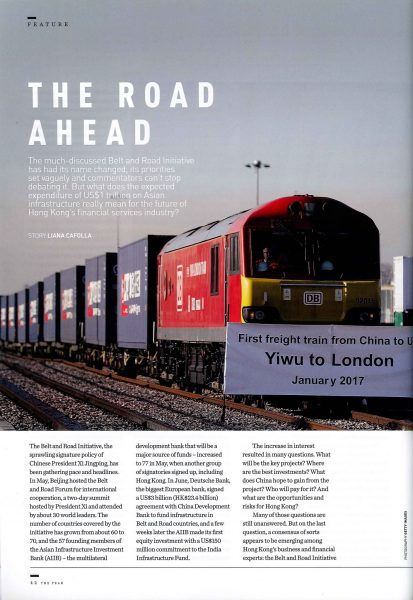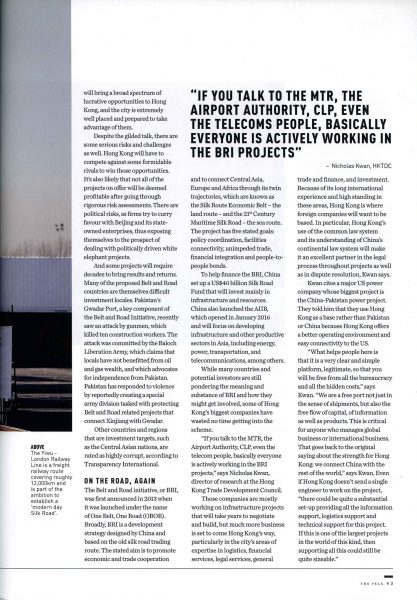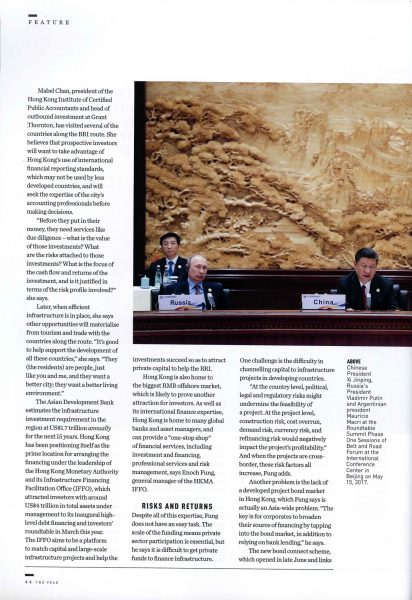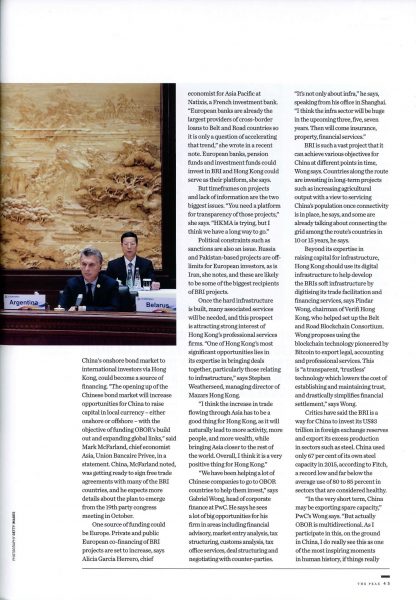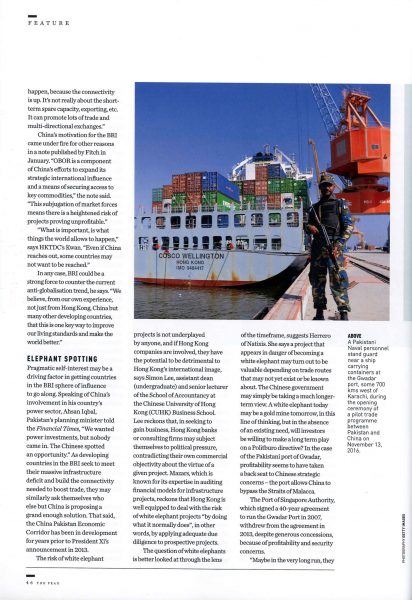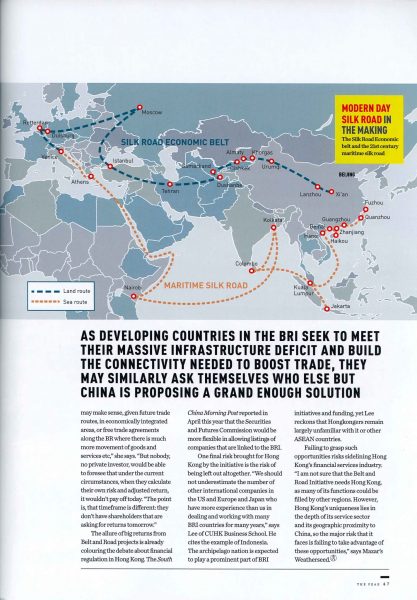Hong Kong Should Not Underplay the Risk of White Elephant Projects from BRI
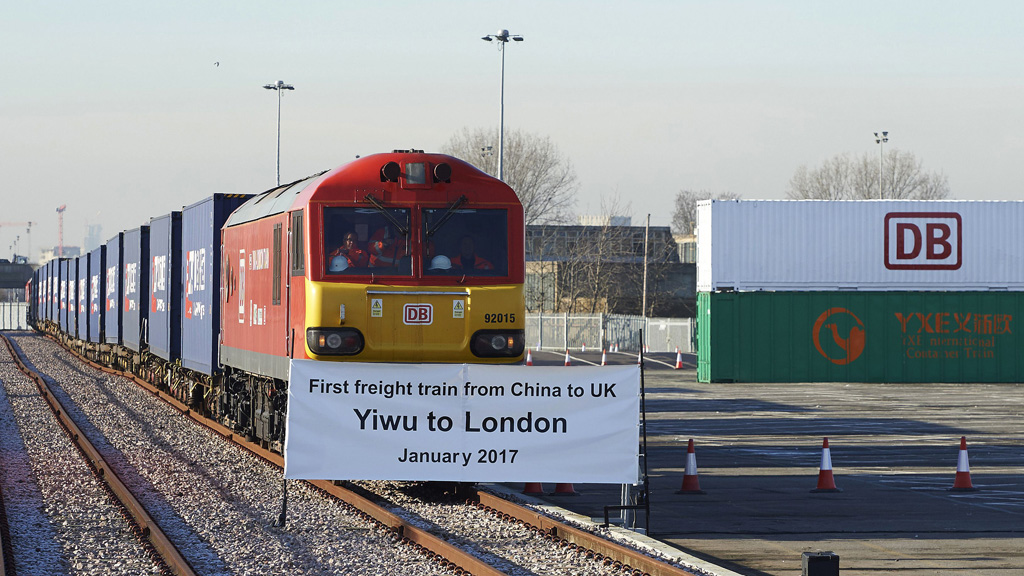
What does the expected expenditure of US$1 trillion on Asian infrastructure from BRI really mean for the future of Hong Kong’s financial industry? Simon Lee told The Peak magazine that Hong Kong banks or consulting firms may subject themselves to political pressure, contradicting their own commercial objectivity about the virtue of a given project.
The Belt and Road Initiative (BRI), the sprawling signature policy of Chinese President Xi Jingping has been gathering pace and headlines. The stated aim of BRI is to promote economic and trade cooperation and to connect Central Asia, Europe and Africa through its twin trajectories, which are known as the Silk Route Economic Belt – the land route – and the 21st Century Maritime Silk Road – the sea route. What does the huge expenditure on Asian infrastructure really mean for the future of Hong Kong’s financial industry?
The Asian Development Bank estimates the infrastructure investment requirement in the region at US$1 trillion annually for the next 15 years. Hong Kong has been positioning itself as the prime location for arranging the financing.
Critics have said the BRI is a way for China to invest its US$3 trillion in foreign exchange reserves and export its excess production in sectors such as steel. In an interview with The Peak magazine, Simon Lee, Assistant Dean (Undergraduate Studies) and Senior Lecturer of School of Accountancy at The Chinese University of Hong Kong Business School said: “The risk of white elephant projects is not underplayed by anyone, and if Hong Kong companies are involved, they have the potential to be detrimental to Hong Kong’s international image.”
Lee reckoned that, in seeking to gain business, Hong Kong banks or consulting firms may subject themselves to political pressure, contradicting their own commercial objectivity about the virtue of a given project.
One final risk brought for Hong Kong by the initiative is the risk of being left out altogether. “We [Hong Kong] should not underestimate the number of other international companies in the U.S. and Europe and Japan who have more experience than us in dealing and working with many BRI countries for many years,” said Lee. He also cited the example of Indonesia. The archipelago nation is expected to play a prominent part of BRI initiatives and funding, yet Lee reckoned that Hongkongers remain largely unfamiliar with it or other ASEAN countries… Read More
Please also click the image (p.47-48) below to read the full story.


